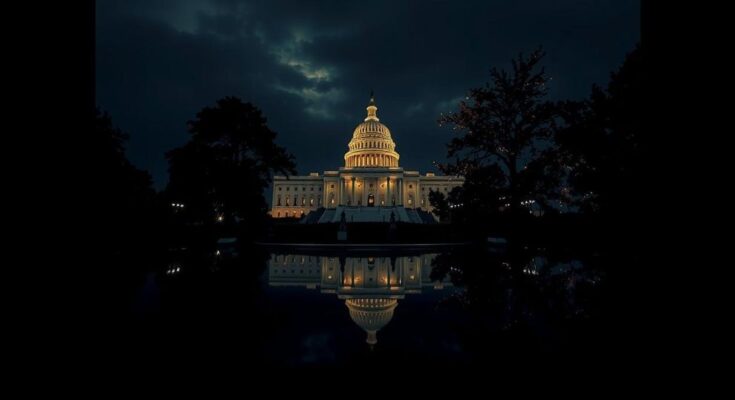The 2024 presidential election is unusually close, with polls indicating a deadlock between Vice President Kamala Harris and former President Donald Trump. The stark differences between the candidates reflect broader societal divisions and political anxieties. Previous elections highlighted the need for civic engagement and healing through shared humanity, a principle that is increasingly vital. With the vote imminent, the call to participate responsibly in the electoral process stresses the importance of voting for the common good, regardless of the eventual outcome.
As we approach the critical juncture of the 2024 presidential election, a mere five days away, current national polls indicate an unprecedented statistical tie between the primary candidates. The extreme closeness of this election has led commentators to liken the outcome to mere chance, utilizing phrases such as “coin tosses” and “knife’s edges” to illustrate the uncertainty. This closeness is perplexing to many observers, especially in light of President Joe Biden’s decision not to run for reelection and instead endorse Vice President Kamala Harris as the Democratic nominee. The contrast between Harris and former President Donald Trump has never been more pronounced; one is a convicted felon with a history of divisive rhetoric, while the other possesses a legal background marked by service as a prosecutor and attorney general in California. Harris’s candidacy represents youth, vigor, and a commitment to restoring decorum and sanity to the highest office, starkly juxtaposed with Trump’s controversial track record that many argue undermines democratic values. With the election looming, an air of anxiety pervades the nation, as voters grapple with the implications of either candidate taking the presidency. Reflecting on previous elections, I revisited my columns written prior to the 2016 and 2020 elections, where I expressed both concern and a measure of hope. In 2016, I emphasized the need for proactive engagement and healing amid deep societal divisions. My call for peacemaking was influenced by the teachings of St. Francis of Assisi, who highlighted the significance of reconciliation in turbulent times—an aim that feels increasingly necessary in the current political climate. By 2020, my tone turned somewhat graver, inheriting the cynicism that had grown during Trump’s administration. Drawing upon Pope Francis’ encyclical “Fratelli Tutti,” I maintained that, regardless of the election’s outcome, it was essential to foster shared humanity and resist despair in the face of adversity. Now, on the brink of another consequential election, the challenge lies in combating prevalent cynicism and the collective amnesia surrounding the events of the Trump administration, particularly the January 6 insurrection, which remains a significant threat to the foundational tenets of democracy. Despite the pressing stakes, the challenges in restoring a sense of community and shared humanity are formidable. The rhetoric emanating from Trump during his campaign has alarmingly mirrored the dehumanizing language of historical dictators, igniting concerns over the re-emergence of harmful ideologies. As we stand less than a week from casting ballots, the prospect of either Harris winning—potentially bringing about a return to normalcy—or Trump’s ascension, characterized by loyalty over competency, looms large. The latter scenario would likely signal a continuation of chaos and governance based less on experience and legality than on subservience to Trump’s whims. These dire possibilities arouse a sentiment bordering on pessimism, prompting a confrontation with the realities of our present circumstances. It is crucial to remember that hope should not be a passive anticipation of better days, but rather an active pursuit of the common good. Aligning with the teachings of the Second Vatican Council, which articulates the vital role of civil governments in promoting the common good, we must regard our electoral responsibilities with utmost seriousness and integrity. Every vote cast is a vital component of our societal obligations, particularly as we strive to uplift and protect the most vulnerable among us. In these final days, it remains imperative to vote judiciously and to persistently advocate for the betterment of our shared existence.
The 2024 presidential election is unfolding against the backdrop of significant political upheaval and growing divisions in American society. The nature of this election is marked by its unprecedented closeness, leading to heightened anxiety and uncertainty among voters. The major candidates present starkly contrasting political backgrounds and philosophies, compelling the electorate to closely examine the implications of their choices. The historical context of previous elections in 2016 and 2020 informs the current atmosphere, as previous concerns about civic responsibility, memory preservation, and a commitment to shared humanity resurface. The current commentary reflects an urgent call to not only participate in the electoral process but to engage actively in the maintenance of democratic values and societal cohesion, amidst the fears and complexities highlighted by recent political actions.
The 2024 presidential election presents not only a pivotal moment for American democracy but also a profound challenge to the electorate’s collective conscience. As the contest draws near, the potential outcomes raise critical questions about governance and the safeguarding of democratic principles. It is essential for voters to engage fully in the electoral process, as exercising the right to vote is fundamental to preserving the common good. The current electoral landscape necessitates a commitment to act responsibly and to stand firm against cynicism, ensuring that whatever the election outcome, the pursuit of a just, equitable, and cohesive society remains the priority moving forward.
Original Source: www.ncronline.org




